英国成为首个批准使用默克冠病口服药的国家
文 / 廖慧婷
11/04/2021
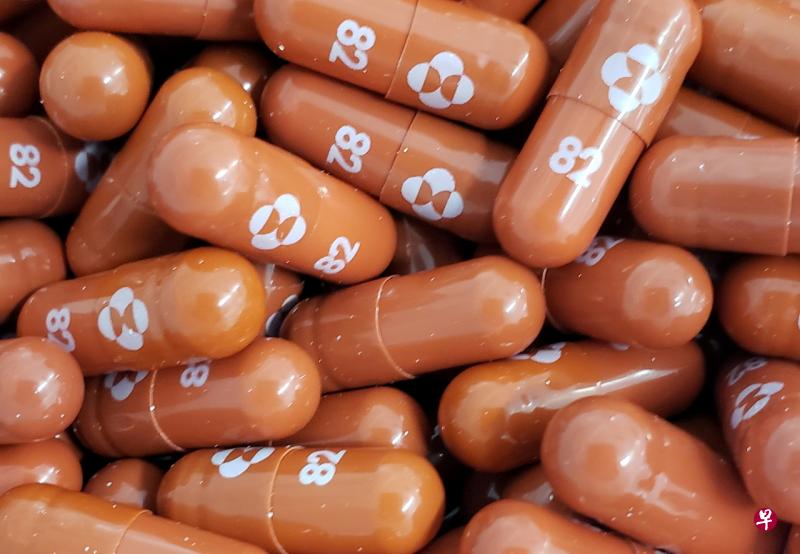
(早报讯)英国监管机构周四(11月4日)宣布,批准使用美国药剂公司默克(Merck)的冠病口服药莫那比拉韦(molnupiravir)为轻度至中度冠病患者治疗,成为世界首个批准使用该药的国家。
法新社报道,英国药品与保健品管理局(MHRA)周四批准为面对冠病重症的高危群体,即身上至少有一个风险因素(包括肥胖、年龄较大以及患有糖尿病和心脏病等)的轻度至中度冠病患者,使用莫那比拉韦。
该药管局表示,该药的试验结果显示,它“在降低患有轻度到中度冠病的高风险群中的住院和死亡风险方面是安全有效的”。当局也建议,要在确诊染疫并出现症状的五天内,尽快服用该药。
莫那比拉韦由默克和美国新兴生物疗法公司Ridgeback联合研发。默克早前公布的临床试验结果显示,若在染疫初期用药,能将患者的重症和死亡风险减半。公司预计到今年结束前,可生产1000万个疗程的药量。
英国上个月宣布,已经向默克采购48万个疗程的药量。
澳洲将采购30万份默克实验性抗冠病口服药疗程
文 / 陈慧璋
10/05/2021
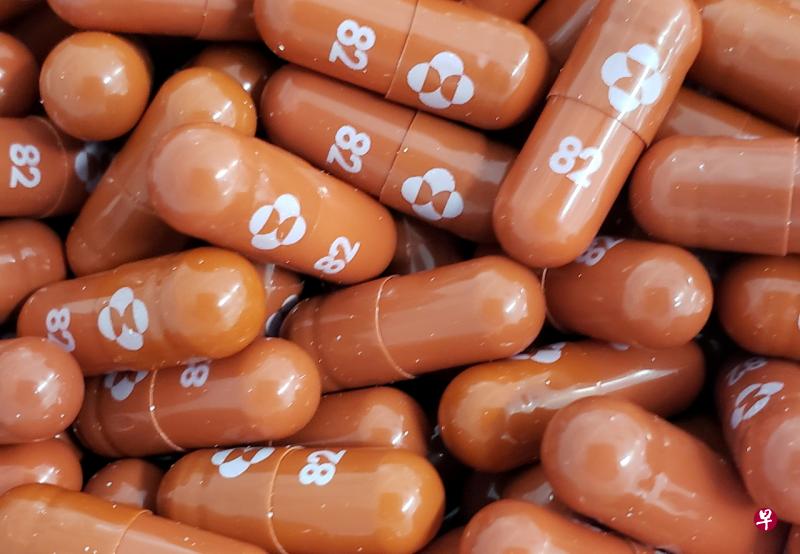
(早报讯)澳大利亚总理莫里森周二(5日)宣布,澳洲将向美国药厂默克公司(Merck & Co)购买30万份实验性抗冠病口服药疗程。
路透社报道,这款名为Molnupiravir的药物是第一款抗冠病口服药。专家表示,如果Molnupiravir获药物监管当局通过,将有望使冠病死亡病例和住院病例减半。
莫里森周二接受澳洲九号新闻网访问时说,10粒Molnupiravir为一个疗程。每名成年冠病患者必须连续五天服用Molnupiravir,每次服两粒。
莫里森说:“Molnupiravir将允许我们与冠病病毒共存。”
他还表示,一旦获得澳洲药品监管局批准,澳洲应可在明年年初收到30万份Molnupiravir。
默克公司预计到今年年底可生产1000万份Molnupiravir疗程。
Molnupiravir的临床试验是在菲律宾进行,韩国、泰国、台湾和马来西亚均表示,正与默克公司磋商采购这款口服药的事宜。

Tel: 551-580-4856 | Email: F.WINNIE.S@GMAIL.COM
北美法律公益讲座安排
时间:周二到周五 晚间
5:30-7:00(西部)
8:30-9:30(东部)
重播:第二天
上午9:00(西部时间)
中午12:00(东部时间)
周二: 遗嘱和授权书(Lisa讲)
周三: 数据泄露和个人身份保护&事业机会说明会
周四:北美常见法律问题(讲员Irene )
周五:小企业法律和员工福利(晶旌)
Zoom 6045004698,
密码:请扫码进群
另外:周三6:30(西部时间)美国专场
定期邀请美国律师联合讲座
Zoom 951 9092 9213
密码:请扫码进群

默沙东抗疫口服药可降低50%住院或死亡风险
文 / 麦可欣
10/02/2021
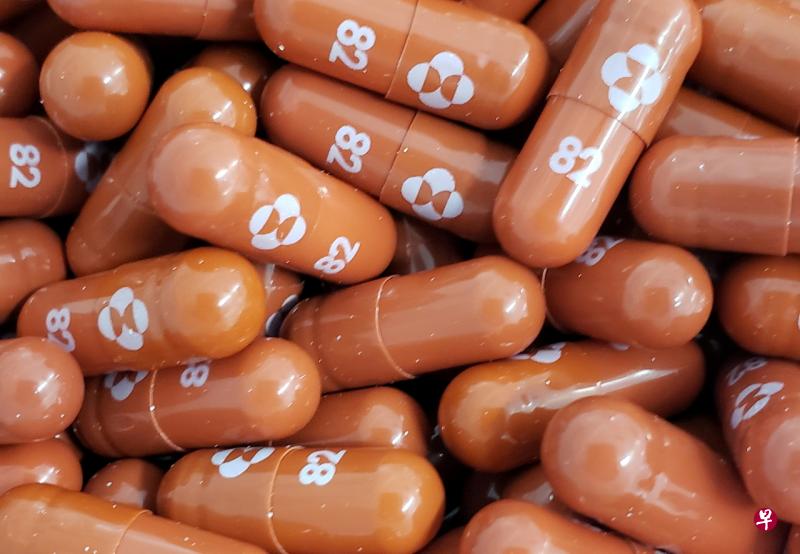
(早报讯)美国默沙东药厂(Merck & Co Inc)周五(10月1日)公布,研发中的冠病实验口服药“molnupiravir”,可使重症高风险患者的住院或死亡率降低约50%。默沙东表示,将向美国当局申请紧急授权使用,一旦获批准,将是全球首款抗冠病口服药。
默沙东药厂发表声明说,:“根据期中分析,服用molnupiravir的染疫患者中,至29天有7.3%住院;而服用安慰剂的患者,至29天有14.1%住院或死亡。”
默沙东药厂计划针对这个口服药尽快向美国提出紧急使用授权,并且向全球监管机关递交申请。由于临床实验结果证实有疗效,在外部监测人员建议下,第三期临床试验提早喊停。
Merck says its new Covid pill reduces the risk of hospitalization, death by half for some patients
By Chloe Taylor
10/02/2021
KEY POINTS
- A phase 3 trial of Merck and Ridgeback Biotherapeutics’ oral antiviral treatment molnupiravir showed it reduced the risk of hospitalization or death by around 50% in Covid patients.
- Merck plans to seek emergency use authorization in the U.S. and submit marketing applications to other global drug regulators.
- If authorized by regulatory bodies, molnupiravir could be the first oral antiviral medicine for Covid.
- “The company, when they briefed us last night, had mentioned that they will be submitting their data to the FDA imminently,” White House chief medical advisor Dr. Anthony Fauci said at a Covid briefing Friday.
Merck and Ridgeback Biotherapeutics said Friday they’ve developed a drug that reduces the risk of hospitalization or death by around 50% for patients with mild or moderate cases of Covid.
The companies plan to seek emergency authorization for the antiviral Covid treatment after the medicine showed “compelling results” in clinical trials.
The drug, molnupiravir, is administered orally and works by inhibiting the replication of the coronavirus inside the body.
An interim analysis of a phase 3 study found that 7.3% of patients treated with molnupiravir were hospitalized within 29 days. Of the patients who received a placebo, 14.1% were hospitalized or died by day 29. No deaths were reported in patients who were given molnupiravir within the 29-day period, while eight deaths were reported in placebo-treated patients.
“The news of the efficacy of this particular antiviral is obviously very good news,” White House chief medical advisor Dr. Anthony Fauci said at a Covid briefing Friday. “The company, when they briefed us last night, had mentioned that they will be submitting their data to the FDA imminently.”
“The FDA will look at the data and in their usual, very efficient and effective way, will examine the data as quickly as they possibly can, and then it will be taken from there,” Fauci said.
All 775 trial participants had laboratory-confirmed symptomatic Covid-19 and were randomly given molnupiravir or a placebo within five days of symptoms.
Every participant was unvaccinated and had at least one underlying factor that put them at greater risk of developing a more severe case of the virus. The most common risk factors included obesity, being over age 60 and having diabetes or heart disease.
The phase 3 part of the trial was conducted at more than 170 sites, in countries including the U.S., Brazil, Italy, Japan, South Africa, Taiwan and Guatemala.
Molnupiravir’s efficacy was not affected by the timing of symptom onset or patients’ underlying risk factors, the study showed. It also proved to be consistently effective in treating all variants of Covid, including the widely dominant and highly transmissible delta strain.
Adverse events were comparable in the molnupiravir and placebo groups, with around 10% reporting adverse events. Just 1.3% of the molnupiravir group discontinued therapy due to an adverse event — less than the 3.4% of the placebo group who did so.
Recruitment into the study is being stopped early due to the positive results, at the recommendation of an independent Data Monitoring Committee and in consultation with the U.S. Food and Drug Administration.
Merck is also testing molnupiravir in a separate global phase 3 study to evaluate its efficacy in preventing the spread of Covid within households.
‘Profound impact’
Robert M. Davis, CEO and president of Merck, said in a press release Friday that the company would do everything it can to bring molnupiravir to patients as quickly as possible.
“With these compelling results, we are optimistic that molnupiravir can become an important medicine as part of the global efforts to fight the pandemic,” he said.
Ridgeback Biotherapeutics CEO Wendy Holman added: “With the virus continuing to circulate widely, and because therapeutic options currently available are infused or require access to a healthcare facility, antiviral treatments that can be taken at home to keep people with Covid-19 out of the hospital are critically needed.”
“We are very encouraged by the results from the interim analysis and hope molnupiravir, if authorized for use, can make a profound impact in controlling the pandemic,” she said.
Emergency use authorization
Merck said Friday it plans to seek emergency use authorization for the drug in the U.S. as soon as possible. The company also plans to submit marketing applications to other international drug regulators.
If authorized by regulatory bodies, molnupiravir could be the first oral antiviral medicine for Covid. Antiviral treatments now in use, such as remdesivir, are administered intravenously.
Merck has already begun producing molnupiravir. The pharmaceutical giant expects to produce 10 million courses of treatment by the end of 2021, and more doses in 2022.
The company agreed earlier this year to supply the U.S. with around 1.7 million courses of molnupiravir if it receives emergency use authorization or full approval from the FDA. The federal government also has the option to purchase additional doses if the drug is approved, White House coronavirus response coordinator Jeff Zients said at Friday’s briefing.
Merck has also entered supply and purchase agreements for the drug with other governments — pending regulatory authorization — and is in discussions with other governments about the supply of molnupiravir.
The company said it plans to implement a tiered pricing approach based on World Bank country income criteria to ensure molnupiravir can be accessed globally. Merck previously announced that it had entered into nonexclusive voluntary licensing agreements for molnupiravir with generic manufacturers, a move intended to assist low and middle-income countries in gaining access to the treatment. Those agreements are also pending approvals or emergency authorization by local regulators.
Profit share
Ridgeback received an upfront payment from Merck as part of the companies’ development of molnupiravir. The company is also eligible to receive contingent payments depending on developmental and regulatory approval milestones.
Profits arising from the collaboration will be split between Merck and Ridgeback equally.
Supreme Court Justice Brett Kavanaugh tests positive for COVID-19
Kavanaugh shows no symptoms, is fully vaccinated, court says
By Houston Keene | Fox News
10/01/2021
Supreme Court Justice Brett Kavanaugh tested positive for COVID-19, the court announced Friday, noting that he’s fully vaccinated and showed no symptoms.
Kavanaugh learned of the positive test Thursday evening, ahead of Justice Amy Coney Barrett’s ceremonial investiture Friday morning, according to a news release from the court.
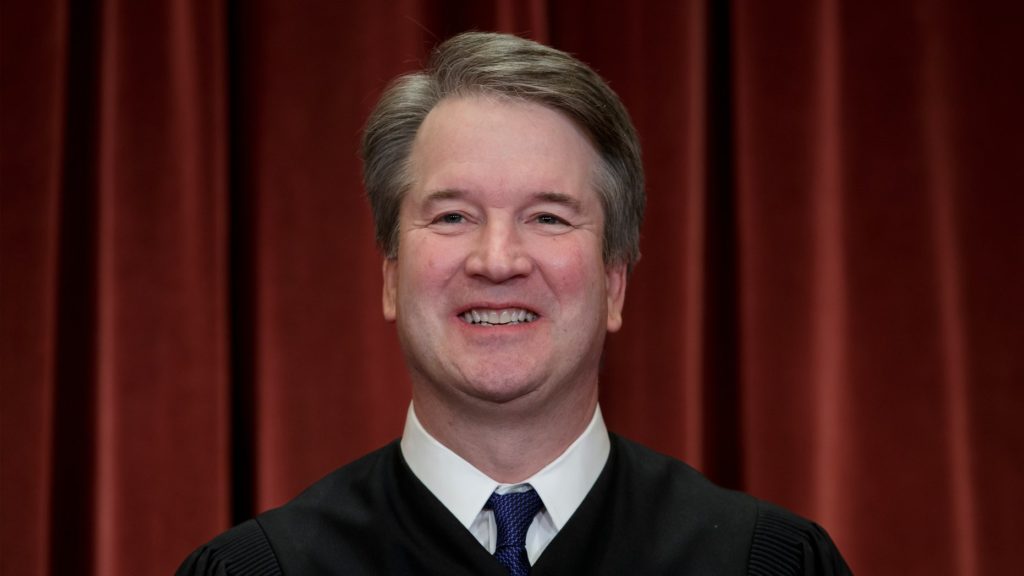
The release added that Kavanaugh’s wife and daughters, all fully vaccinated, tested negative.
“On Thursday, per the Court’s regular testing protocols, Justice Kavanaugh had a routine Covid test ahead of Justice Barrett’s investiture on Friday,” the release said. “On Thursday evening, Justice Kavanaugh was informed that he had tested positive for Covid-19.”
“He has no symptoms and has been fully vaccinated since January. Per current Court testing protocols, all of the Justices were tested Monday morning prior to conference, and all tested negative, including Justice Kavanaugh,” it continued.
Barrett and Kavanaugh will be sitting at opposite ends of the table when oral arguments resume in the Supreme Court on Monday.
Kavanaugh ran in the Capital Challenge Road Race on Wednesday, with his team winning the three-mile race’s judicial division with a 25 minute time.
Several lawmakers, judges and members of the media also participated in the race. Fox News’ Sandra Smith placed first in the Electronic Journalist – Female category while Fox News took first in the Electronic Media category.
COVID-19 breakthrough cases have hit Capitol Hill recently. Fully vaccinated South Carolina Republicans Sen. Lindsey Graham and Rep. Ralph Norman tested positive for the virus in August.
As of Friday, the U.S. has 3.7 million COVID-19 cases and almost 52,000 deaths reported within the last 28 days, according to Johns Hopkins University’s COVID-19 tracker.
1 in 500 US residents has died of Covid-19
By CNN Wire
9/15/2021
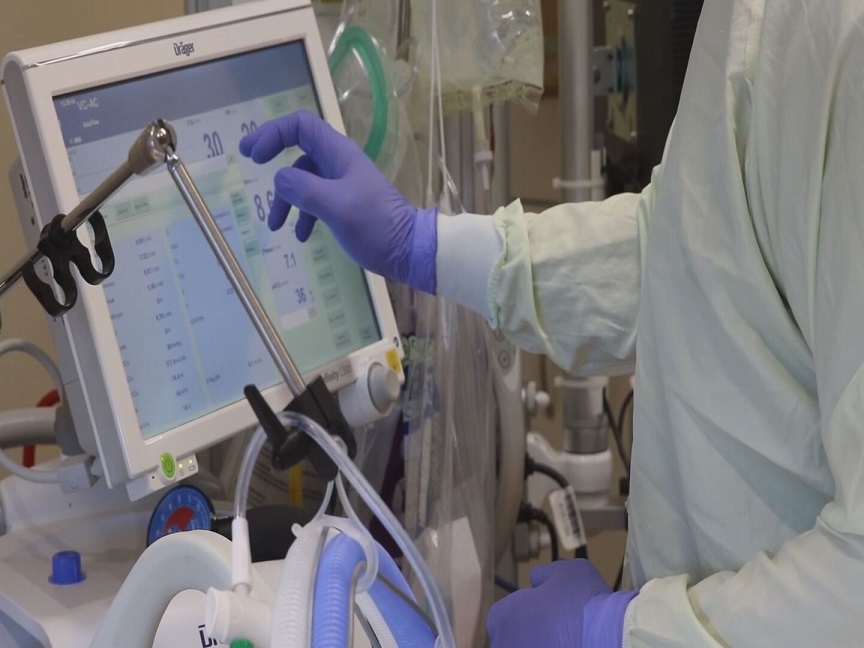
(CNN) — The United States has reached another grim milestone in its fight against the devastating Covid-19 pandemic: 1 in 500 Americans have died from coronavirus since the nation’s first reported infection.
As of Tuesday night, 663,913 people in the US have died of Covid-19, according to Johns Hopkins University data. According to the US Census Bureau, the US population as of April 2020 was 331.4 million.
It’s a sobering toll that comes as hospitals in the US are struggling to keep up with the volume of patients and more children are grappling with the virus. In hopes of managing the spread and preventing more unnecessary deaths, officials are implementing mandates for vaccinations in workplaces and masking in schools.
They are fighting against a sharp upward trend in cases and deaths: The US is reporting a more than 30% increase in average daily cases and a near tripling of average daily deaths over the past month, according to data from the US Centers for Disease Control and Prevention.
But with only 54% of the population fully vaccinated, the rate of people initiating vaccinations each day has declined over the past month.
Health experts have hailed vaccinations as the best source of protection against the virus, noting that the majority of people hospitalized with and killed by Covid-19 are unvaccinated. In Pennsylvania, from January 1 to September 7, 97% of the state’s Covid-19 deaths were among unvaccinated people, Pennsylvania’s acting secretary of health said Tuesday.
Another layer of strong protection, experts say, is masking.
The CDC recommends people — even those fully vaccinated — wear masks indoors in areas with substantial or high community transmission. More than 99% of the population lives in a county with one of those designations.
In Ohio, where children’s hospitals are overwhelmed with Covid-19 and respiratory cases, Gov. Mike DeWine is encouraging schools to issue mask mandates since the state legislature has told him it would overturn any mandate he issued.
“Reasonable people may disagree about a lot, but we can all agree that we must keep our children in the classroom so they don’t fall behind and so their parents can go to work and not take time off to watch their kids at home,” DeWine said.
The combination of masks and vaccinations is the way to keep children in school, Dr. Anthony Fauci, director of the National Institute of Allergy and Infectious Diseases, told CNN Tuesday.
“If you surround the kids with vaccinated people and you have everybody wear a mask, you can get a situation where the children will be relatively safe in school,” Fauci told CNN’s Jake Tapper.
Fight brewing over vaccine mandates
In the effort to manage the spread of the virus, many officials and experts have promoted vaccine mandates — but others are opposing such measures.
New York issued an order in August requiring all health care workers be vaccinated against Covid-19 by September 27. But on Monday, 17 Catholic and Baptist medical professionals filed a federal complaint seeking to prevent the state from enforcing the mandate, saying they oppose getting the vaccine for religious reasons.
On Tuesday, a federal judge issued a restraining order temporarily suspending New York state from enforcing its vaccine mandate if health care workers claim a religious exemption.
Because the mandate does not require health care workers to receive their first dose of the vaccine until September 27, the judge’s order states the temporary restraining order “does not, as a practical matter, go into effect until that date.”
A hearing is scheduled for September 28.
After the ruling, New York Gov. Kathy Hochul’s press secretary, Hazel Crampton-Hays said in a statement that the governor is considering all legal options.
“Governor Hochul is doing everything in her power to protect New Yorkers and combat the Delta variant by increasing vaccine rates across the State,” Crampton-Hays said.
In Los Angeles, despite a mandate that all city employees be inoculated against the virus, nearly a quarter of the police force is seeking an exemption, according to Mayor Eric Garcetti’s office. Those who are not vaccinated will be required to show evidence of weekly testing and a negative COVID result if regularly reporting to work.
By November 1, Nevada workers who serve “vulnerable populations” must show proof of vaccination under a new emergency regulation passed Tuesday.
New hires must have at least one dose by their start date and must follow through on the required vaccination schedule to remain employed. Workers are allowed to ask for a medical or religious exemption.
Booster meeting won’t be a slam dunk
On Friday, the US Food and Drug Administration (FDA) will meet to discuss whether most Americans need a booster of their Covid-19 vaccine.
Unlike other meetings to discuss the vaccine, this one, with requests from Pfizer to authorize a third dose for most people, won’t be a slam dunk.
“This will be much messier than in December,” said Dr. William Schaffner, an infectious disease specialist at Vanderbilt University. The FDA committee was quick to recommend authorization of vaccines made by Pfizer and rival Moderna last December.
When the FDA’s Vaccines and Related Biological Products Advisory Committee meets Friday, it will be presented with dueling data, some of it suggesting there’s a need for boosters, but other pieces of data suggesting there is no such need.
Three separate articles published last week in the CDC’s Morbidity and Mortality Weekly Report suggest that we don’t need boosters.
On the other hand, an Israeli study found that over time, the vaccines’ power to keep people from getting very sick with Covid-19 diminished. Looking at illnesses in the second half of July, that study found that those who’d received their second dose of Pfizer’s vaccine in March were 70% more protected against severe disease than those who received the second shot in January.
President Joe Biden announced plans last month to begin administering booster doses next week. While she wouldn’t say directly if that date would be met, CDC Director Rochelle Walensky said Tuesday she is hopeful about the timeline to get doses administered.
If the booster does get approved, experts will still have to wait and see how much protection is added by the third dose.
“I would hope that that would sustain us for an extended period of time, but I don’t know that right now,” Fauci said. “We’re just going to have to do the boost, and then follow people long enough to determine what the durability of that protection is.”




